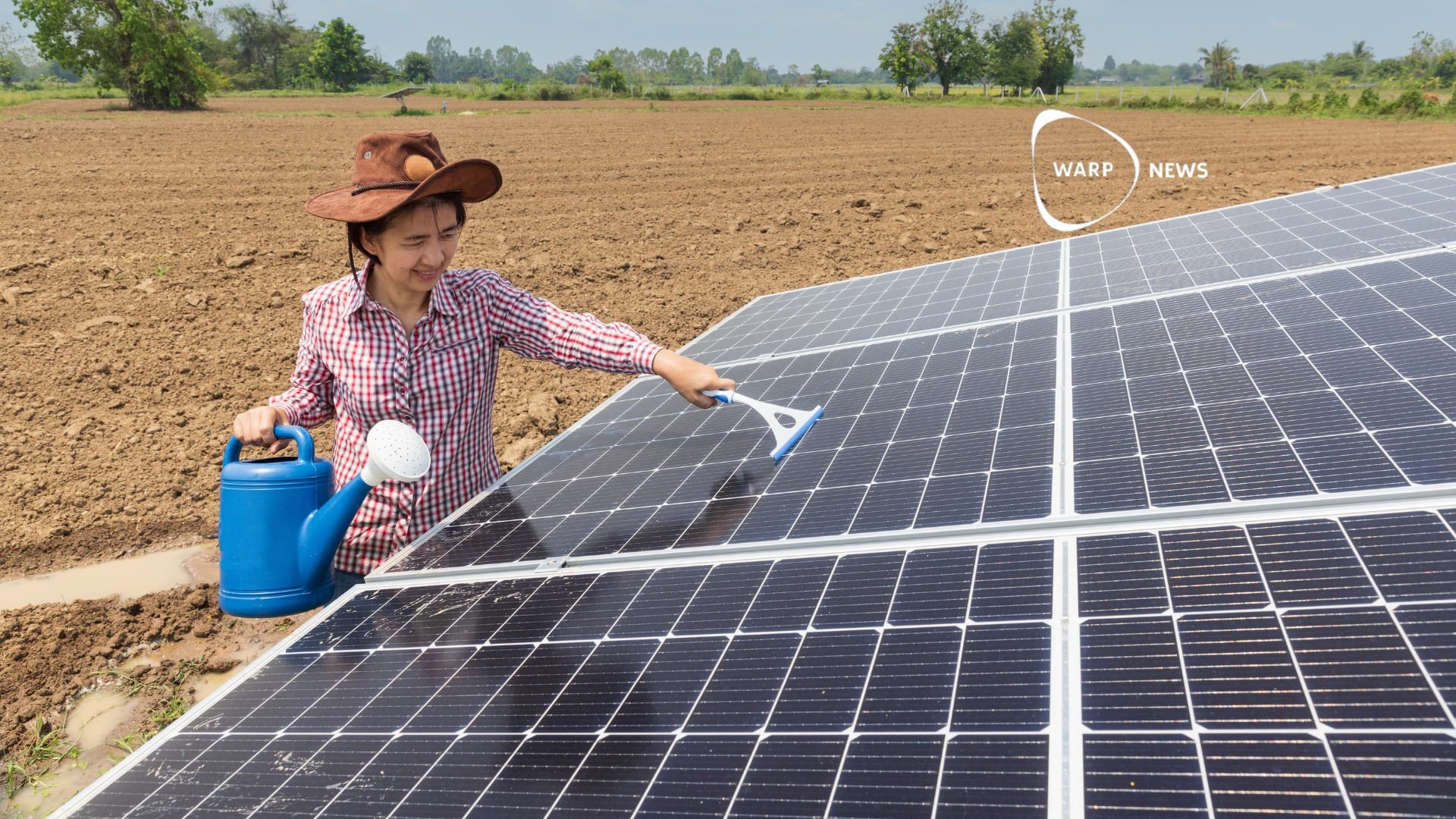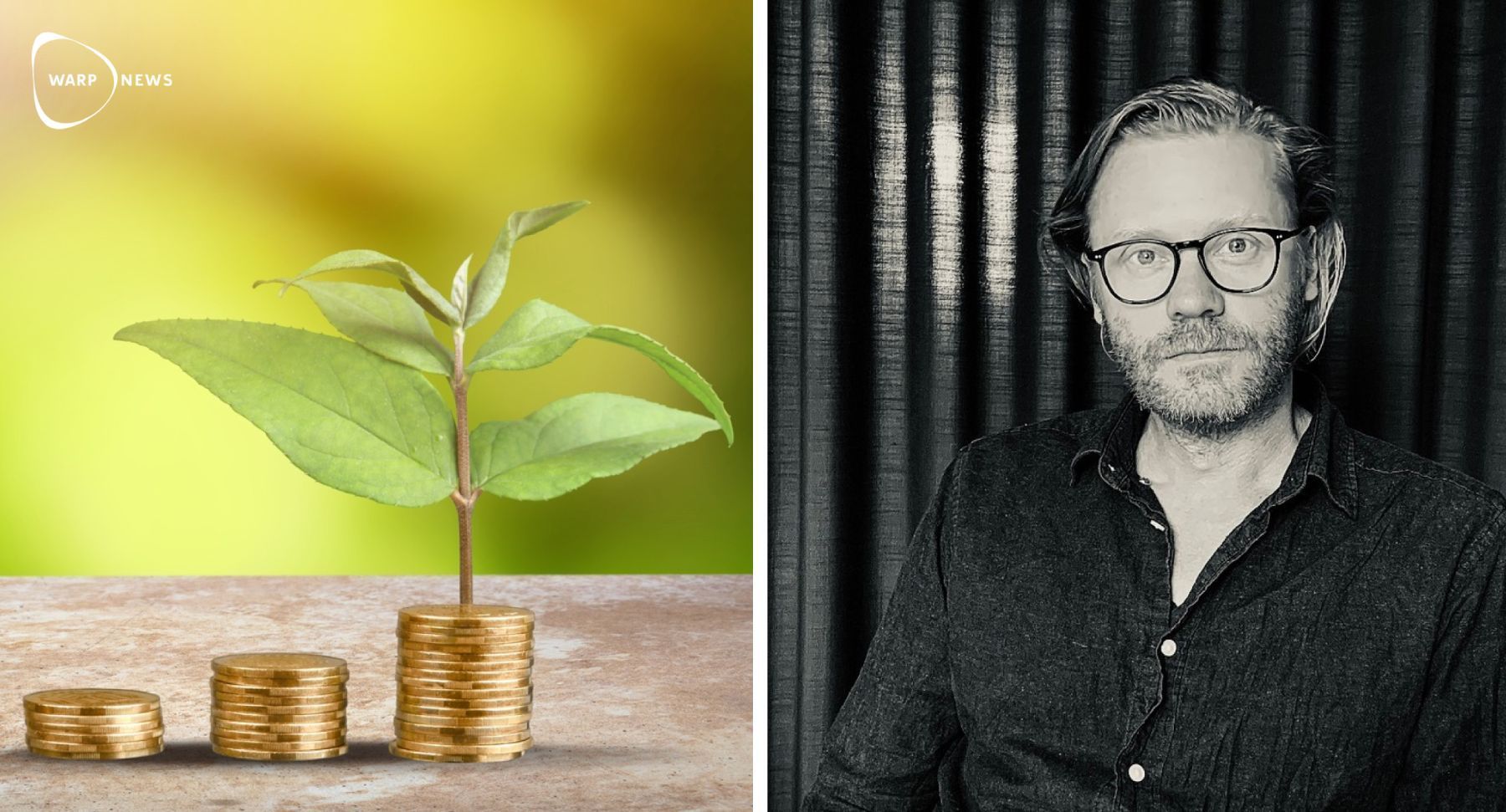
👊 "Wouldn't it be great if we could make people rich by saving the climate?"
Huge investments are required by companies to reduce emissions and change to climate-friendly technology. Rison intends to solve that problem, by taking care of the investments and then selling it as a service to the company. The result is directly reduced emissions and costs.
Share this story!
If we are to reduce emissions and deal with climate change, that would constitute a big change for almost all businesses. They have to electrify their vehicle fleets, put up solar panels, replace old lighting with new energy-efficient, and much more. That costs large sums of money and the investments often end up outside what is the companies' core business, where they prefer to invest.
Rison intends to solve this problem for them, by taking care of both the project work and investments and then selling it as a service to the company. Instead of buying solar panels themselves and installing them on the roof, Rison does it and charges the company a fee.
– If a company bought electricity from the coal power plant yesterday, they'll be able to draw electricity from their solar panels tomorrow. A little cheaper and much better for the environment. We do the investments, so the companies don't have to, says Jesper Jonsteg, CEO and co-founder.
It also opens up the possibility for companies to work on several projects at the same time, which speeds up the transition.
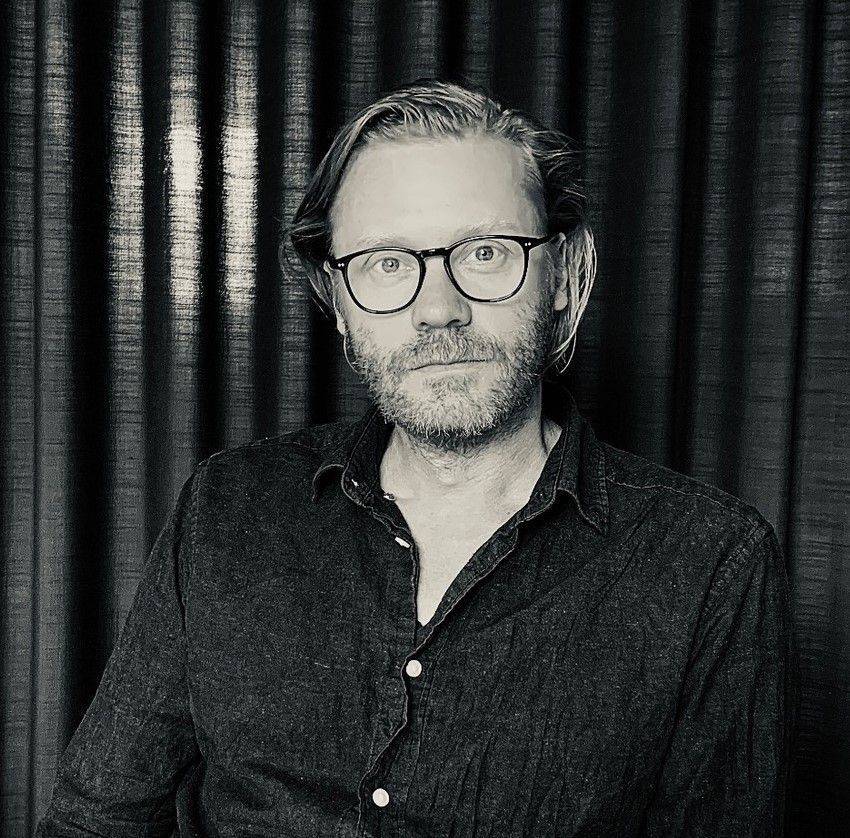
What is the advantage for companies not to make the investments themselves?
– It is the same advantage as when a company rents an office. It is better to rent than to invest in real estate yourself. Investments are usually made in their core business.
A total society-wide transition requires a huge amount of investments.
– They do not fit into the logic of companies. Most people are doing lean (ed. note: a business method with a focus on efficiency). They even lease their factories. Then all of a sudden you are expected to buy a lot of hardware that you usually do not buy.
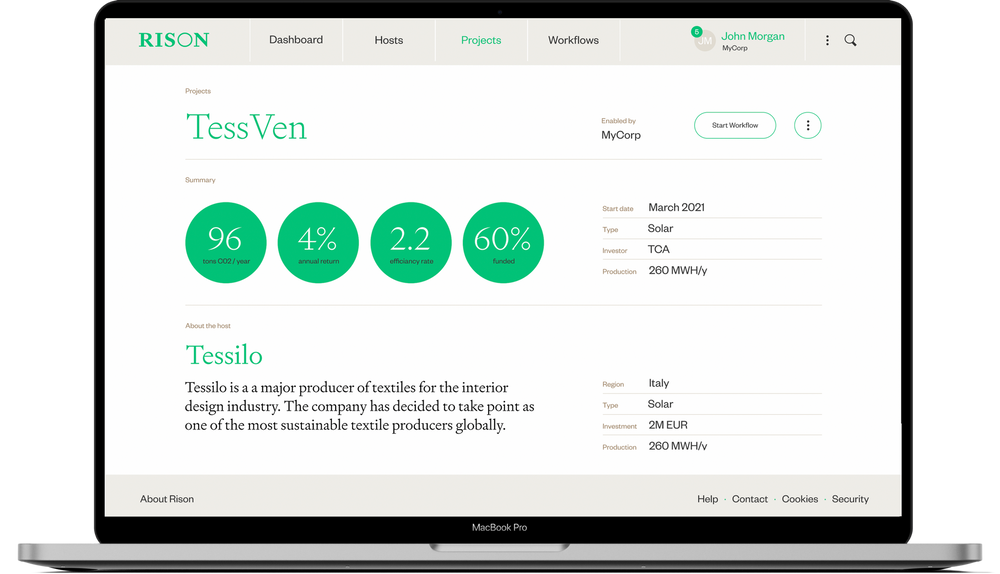
Jesper Jonsteg has previously worked in the IT and management field, after having studied mathematics, business administration, and statistics at the Stockholm School of Economics. Investments he learned through the many investment calculations he has made for clients. About ten years ago, he began to focus more on sustainability.
– It was good to work in the IT and management consulting industry, he says and pauses for a few seconds. But I did not think it was particularly fun. I wanted to do something that got me going and I felt passionate about. Once you get into sustainability, the biggest issue of our time, then it feels difficult to let it go.
He started Bright Sunday, a solar cell company, which offers solar panels as a service. But somewhere along the way, he realized that was not enough. The need for investment was gigantic and things were moving too slow. Offering more than solar panels as a service to companies would reduce the threshold for them and it also opens up the possibility of reaching the really big capital.
– There is a demand in the capital market for green investments, where it is possible to show a real emission reduction.
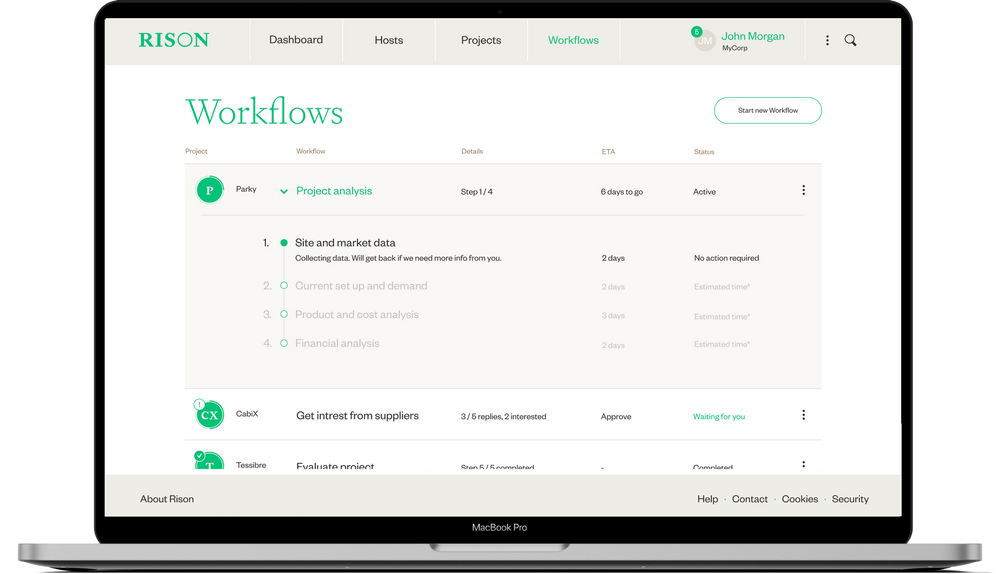
Rison's plan is to start with smaller projects, build up a portfolio of several larger projects in a fund so you can get investments via institutional capital.
– So we meet companies, take the best projects and invest in them via money from individual investors. Then we can scale it up to fund size so that we can reach institutional capital, such as pension funds. Then we can reduce the cost for our customers. Then more projects will work in models and emissions will be reduced faster. And we make more money.
What can the Warp community do to help you succeed?
– We have a very solid, scalable model and world-class expertise in climate infrastructure and financing models, but we are happy to accept help, Jesper Jonsteg answers.
If you are one of the following, feel free to contact Rison:
- A manufacturing company that wants to reduce its emissions.
- A cleantech company that wants to offer a product as a service.
- An organization (or individual) that supports an industry or market with climate change.
- Professional investor or company that wants to invest in projects with a measurable climate effect.
Are there business ideas in this area that you think someone else should do?
– There is a need for more companies that offer climate benefits as a service. Solar energy as a service. Heat as a service. Lighting as a service. Which have an emission-reducing effect.
– If it can be shown that both emissions and costs are reduced directly, it will be easier for a CFO to make the decision, says Jesper Jonsteg.
At the end of the interview, he returns to the massive work required to get all the investments needed but also believes that the situation is good now.
– Two projects with the same savings, the one with greater climate benefit will have a greater economic return. It's not a fluke, it's pure math. It is great if we can make people rich by saving the climate, Jesper Jonsteg concludes.
Mathias Sundin
By becoming a premium supporter, you help in the creation and sharing of fact-based optimistic news all over the world.


